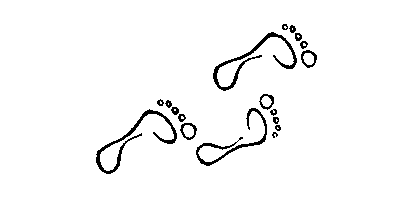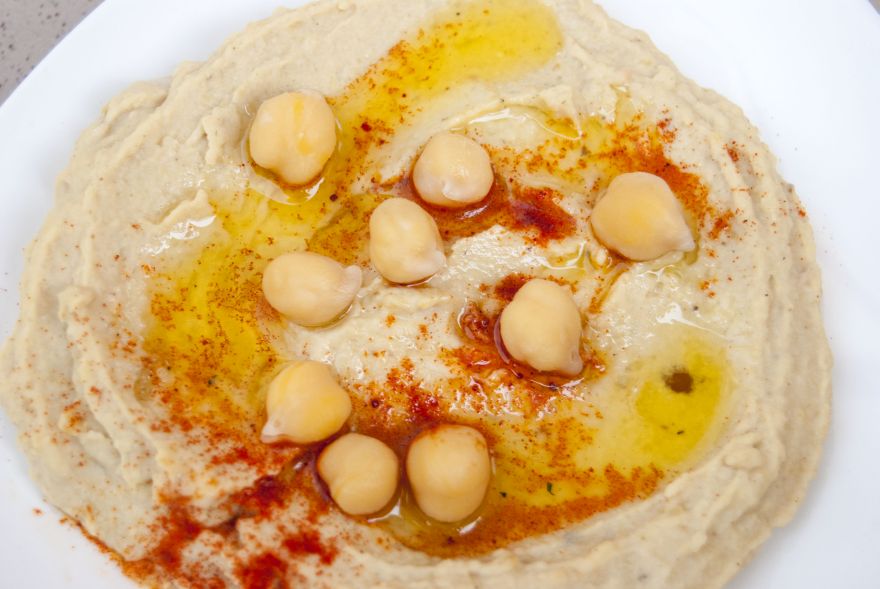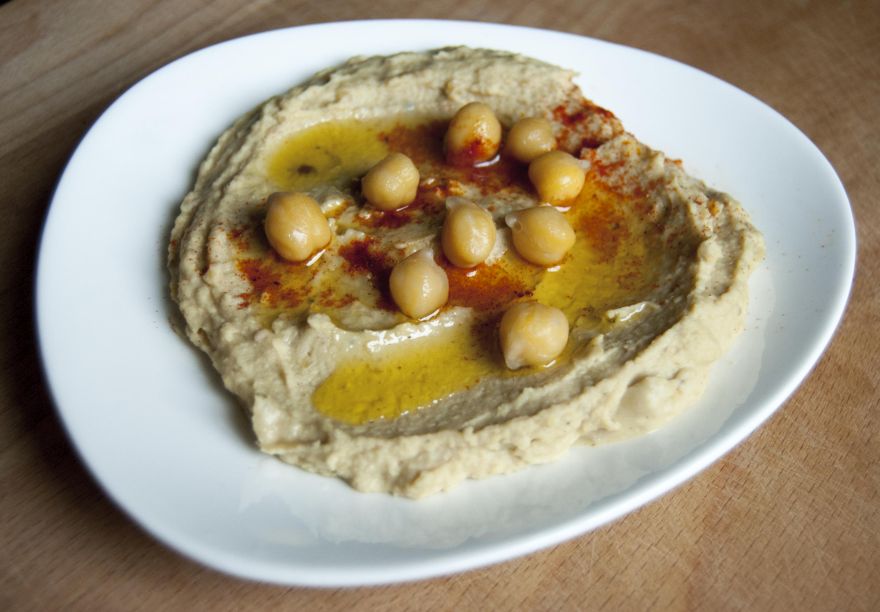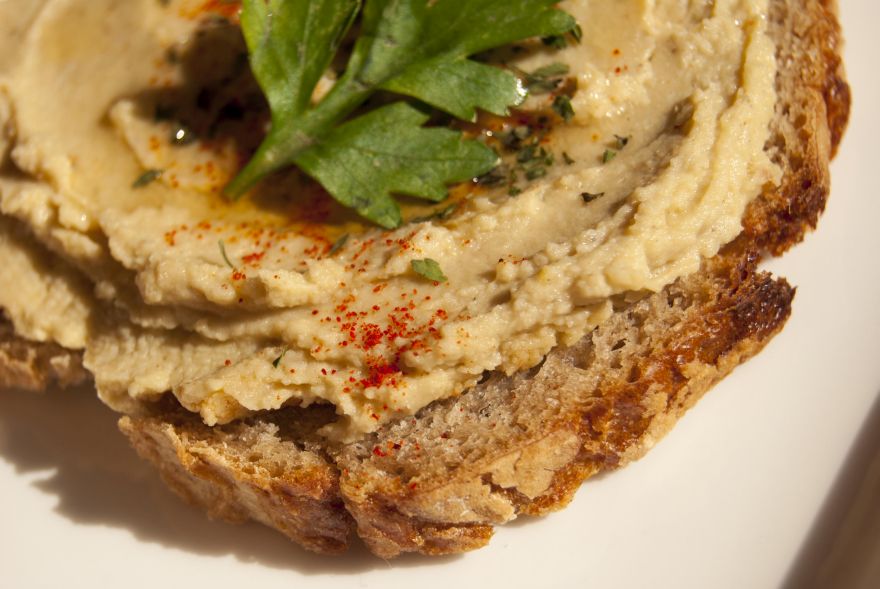The recipe for hummus was one of the first I met after switching to vegetarianism and from that moment, this brilliant paste has become an everyday quest to my fridge. It is a great addition to breakfast, but similarly great in a form of a healthy snack between meals or substitute for unhealthy cravings (eg. Crisps swallowed in front of TV).
The hummus is creamy, smoothe chickpea spread with tahini (milled sesame seeds), originating from Lebanon and very popular in the Middle Eastern cuisine around the world. It’s most often consumed with pita bread and is served with with olive oil, the addition of fresh ground pepper and chopped parsley or coriander.
For me, hummus is a mandatory addition to almost every breakfast and tastes greatly with wholemeal bread. Jar of a classic hummus is always in my fridge. And it’s sooo easy to prepare. What’s more, chickpeas combines splendidly with other additives, so when I get tired of the standard version, for example, I prepare myself hummus with dried tomatoes, mushrooms or broad beans.
RICHNESS OF NUTRITIONAL VALUES
1. The hummus is rich in dietary fiber, thanks to which the digestive system is functioning properly. Additionally, fiber provides a feeling of satiety, regulates bowel functioning and enables you to effectively lose weight.
2. Chickpeas is a rich source of valuable protein, which is a basic structural material for our muscles, bones or skin. Therefore, hummus is a mandatory component of the diet of vegans and vegetarians.
3. Chickpeas is also known for its cholesterol-lowering effect. It is rich in monounsaturated fats, which help to loose excess weight.
4. Both chickpeas and sesame contain much iron that, together with folic acid and vitamin B6, have homopoietic function, stimulate the immune system and promote tissue regeneration. A large amount of calcium facilitates the process of bone formation.
HUMMUS – RECIPE
INGREDIENTS:
- 1 cup (approx. 150 g) of dry chikpeas
- 2 tbsp homemade tahini (milled sesame spread)
- 2 cloves garlic
- 2 tbsp lime juice
- 1/3 glass water from cooking chickpeas (or cold clean water)
- adash of salt
- spices: salt, pepper, cumin, etc.
PREPARATION:
- A day before drench chickpeas in cold water (mind, that chickpeas absorbs a lot of water) and add 1/2 tsp baking soda*. Leave for the night.
- In the morning drain and rinse the chickpeas. Refill the cold water with 1/2 tsp of baking soda* and cook until chickpeas is soft enough for you to easily squash it between your fingers (in my case it takes approx. 40-60 minutes).
- Drain and rinse the chickpeas (leave the water from cooking). Transfer it to a blender, add the tahini, garlic, lemon juice and salt, then blend everything into a smooth paste. At this stage, you can add other spices **.
- To such a thick paste pour the cooled water from cooking or a fresh, cool water, mixing constantly. Water from cooking intensifies the flavor of chickpeas, but fresh cold water is also good (especially when we prepare hummus with additives*** and we want to enhance other flavors). Mix until the water combines with toothpaste and you get a smooth, light cream.
- Put the ready hummus into a bowl and let rest before serving. It is most often served with olive oil and fresh chopped coriander or parsley and fresh bread. Put the remaining hummus into a sealed container and store in the refrigerator up to a week.
* the addition of baking soda causes the chickpeas to get very soft, almost buttery. You watn such a consistency to make a good hummus.
** classic addition to hummus is cumin, but you can add freshly ground pepper, marjoram or oregano. The possibilities are almost countless.
*** hummus tastes great with sun-dried tomatoes or mushrooms and soy sauce.






